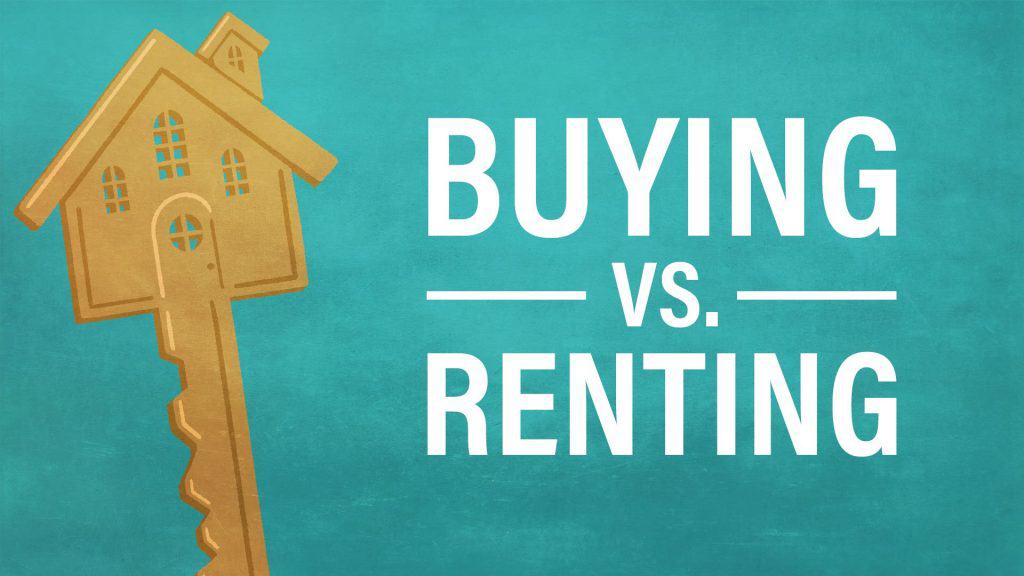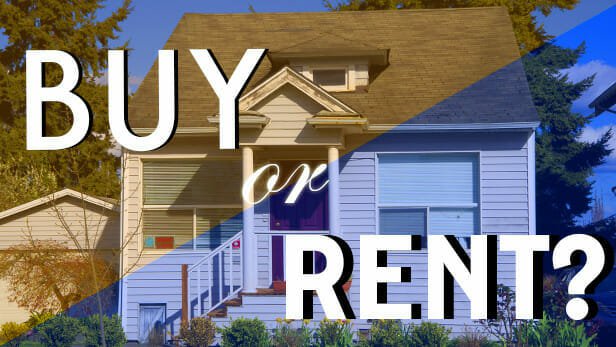
Are you looking to buy a home or do you plan to rent a home ? Are you confused about which is a better option, to buy or rent a home ? In India or anywhere in the world, people would want to buy a house, but due to the increasing real estate rates, most people end up renting a home. Well, buying and owning a home is not child’s play, and renting is also not easy either; both have their pros and cons.
In this article below, we shall discuss what is the difference between buying vs renting a home, what are the pros and cons of renting a home and buying a house, and what are the different factors you need to consider before renting or buying a home. So, let’s get started – shall we?
Buying A Home Vs Renting A Home: What Is The Difference

The most significant and obvious distinction between buying a home and renting a home is ownership. If you decide to buy a house, you own it, and when you rent a house, you don’t own it. However, this isn’t the only factor that needs to be considered.
Mentioned below are the important factors which you need to keep in mind before you decide to rent or buy a home.
1. Rent Ratio
The rental ratio is the proportion of a property’s price to its annual rent. It’s a good idea to buy a home that’s worth 20 times the annual rent. If you pay a monthly rent of Rs 25,000 for a home, you’ll end up paying 3 lakhs a year. If you reside in this house for 20 years, the total cost will be 60 lakhs.
If the property is priced under 60 lakhs, the rent-to-purchase ratio favors buying a house rather than renting. On the other hand, if the property is worth more than 60 lakhs, renting a home is considered to be a better option.
2. Rental Yield
The rental yield is the amount of money your property can bring in each year as a percentage of its value. Let’s say you paid 75 lakhs to buy a property and rented it for Rs 20,000 per month. As a result, the property presently generates 2.4 lakhs per year, which is roughly about 3.2 percent of its current worth.
When you take into account the property tax and maintenance costs that you must pay each year, the rental yield might be as low as 3% and according to experts, buying a house is only worthwhile if the rental income is greater than 5%.
3. EMI Value
If you decide to take a loan when you buy a home, you need to keep in mind the costs of repayment while calculating whether the home would turn out to be profitable. A general guideline you need to keep in mind while buying a house is that if the equated monthly payment (EMI) exceeds 30% of your monthly income, you should not buy a house.
Advantages Of Buying A House

The following are some of the advantages of buying a house versus renting it-
1. Provides Security
Buying and owning a home offers protection and security because you won’t have to be constantly moving around in search of a new home when your lease and rent arrangement expires.
Once you buy a home, you become the owner and have the freedom to choose when you would want to live there. Furthermore, you have the freedom to customize it to your specifications and sell it at any time.
2. Provides Induced Savings
When you buy a home, the idea of forced savings (in most cases) comes into effect in the form of EMIs. Thus when you buy a home, you begin to save more money.
3. Provides Tax Benefits
Tax benefits are one of the most essential advantages when you buy a home. The home loan principal and interest repayments provide tax benefits to homeowners.
4. It Is A Lifetime Investment
Buying a home is a lifetime investment. A home is a valuable asset that increases its price value over the years. By paying regular EMI’s over a long period, capital is built and net worth is established. Thus it is better to buy a house and stay in the same house for a long period before you decide to sell it.
Disadvantages Of Buying A Home
The following are some of the disadvantages of buying a home.
1. It Is A Big Responsibility
Owning a home entails a slew of additional responsibilities and costs. You are responsible for paying for maintenance and repair works, property taxes, utilities, and a number of other expenses.
2. High Upfront Costs
When buying a home, you must pay down a large amount of money as a down payment. Other costs such as registration fees and stamp duty should also be paid.
3. It Is Challenging To Move Out
When you buy a house, you must reconsider your plans before relocating. or moving. If you have to move to another place or city for a job, you won’t be able to move until you locate a buyer or tenant for your home.
Advantages Of Renting A House
Mentioned below are some of the advantages of renting a house
1. Has Fewer Responsibilities
Renting a home comes with fewer responsibilities and expenses. In a rented home, you just have to pay the rent and a few bills, but the owner is responsible to pay for the property taxes, repairs, and maintenance.
2. Less Upfront Costs
There are very few initial costs while renting a house and it is always better to rent a house rather than buying one. When you rent a house, you only have to pay the security deposit and advance payment of rent for a few months. As a result, renting a house will be less expensive than owning a home.
3. Easy To Move Out
Living in a rented house provides easy flexibility when you want to shift out of the house and go to a new city or a different house. You can move out very easily and just need to give a month’s notice to your landlord.
4. Provides Tax Benefits
If you live in a rented home, you may be eligible for a house rent allowance (HRA). In tier-II and tier-III cities, the HRA is 40% of the basic pay, while in metro cities, it is 50% of the basic pay.
Disadvantages Of Renting A Home
1. Tenants Have No Control
If you are a tenant and rent a home, the owner has complete control over it. The owner has the right to increase the rent at any moment as well as to make the house unavailable for rent. Thus renting a house is a risky choice because of these risks.
2. No Choice Of Customization
If you take a house for rent, there is very little choice or the option to customize your house according to your needs. Most house owners would not allow tenants to keep a plant inside the house or even frame a picture on the wall.
3. No Return Of Investment
When you rent a house, there is absolutely no return on investment even after 20 years of renting the same house. The only person who makes a good profit here is the landlord.
Factors To Be Considered Before Buying And Renting A House
Mentioned below are the various factors that you should keep in mind before you decide to buy a home or rent a home.
- Financial Situation- Buying a house involves a hefty down payment and it is not something which you can afford very easily. If you take out a house loan, you will have to pay EMIs to pay back the loan over a lengthy period of time, which may be rather costly. As a result, financial stability is essential when purchasing a home.
- Location- When you buy a property, you must be certain that you will not have to relocate to a different location. If you are required to move to different locations, renting a house is always a better option
- Freedom to make changes – When you own a home, you have the freedom to make changes to it anytime you want and use it for anything you want. This freedom is not available if you rent a home.
Some other factors which you need to keep in mind are the tax benefits involved in buying and renting a home, the lifestyle you lead, and the real estate market value of the property.
Closing Thoughts
The debate over rent vs buy has been happening for a long period. You need to take into consideration some of the advantages and disadvantages of renting and owning a house before you decide to buy or rent a house. However, it is always better to buy a house because you will have complete control over the house. Owning a house also prevents you from paying rent for a very long period of time.
Buying v/s Renting A Home FAQs
1. Is it better to rent a house rather than buying it ?
Renting a house is a more feasible option than buying for people who may not be ready to buy their own house. Tenants save money on maintenance and other expenditures, as well as property taxes, insurance, etc when renting a house.
2. What is the percentage of monthly salary that should be spent on rent ?
It is generally recommended that you should spend not more than 30% of your monthly income on rent and bills such as electricity bills and water bills.
3. When can the rent of a property be increased and who should pay the property tax ?
The rent of a property is usually increased once a year and the owner is responsible to pay the property tax every year.





